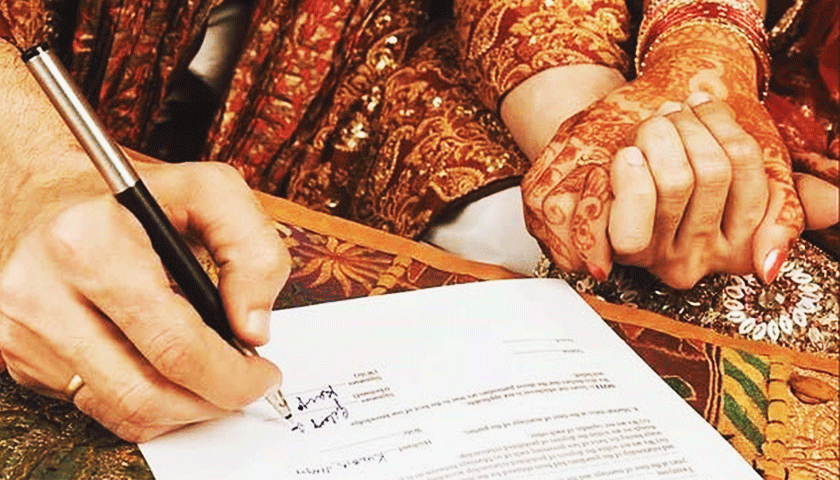Solemnization of Court Marriages in India

It is important to understand the conditions associated with solemnizing. As per the Chapter II, Section 4 of the act, one must fulfill the following conditions for solemnization of a court marriage across the country:
The Conditions
- No Pre-existing Marriage – None of the parties must have spouses living.
- Valid Consent – None of the parties involved should be incapable of allowing valid consent by reason of unsoundness of mind.
- Age – The male involved should have completed the age of 21 years. The female involved should be of age 18 years and above.
- Prohibited Degrees of Relationships – It is crucial that the parties are not included in the degrees of prohibited relationships. There is an exception of cases where a custom governing at least one of the parties allows marriage between them. Under such circumstances, marriage can be solemnized regardless of the relationship between the individuals falling within the degrees of prohibited relationships.
Procedures of Court Marriage in India
Step 1 – Intended Marriage Notice
Under section 5 of the marriage act, a notice must be provided to the marriage officer. It is mandatory for the parties to give notice of the intended marriage in writing. They should sign in the form prearranged in Second Schedule to the Marriage Officer.
The Marriage Officer in charge of the marriage should have jurisdiction within the district where one of the parties have resided for a minimum of 30 days before giving of the notice.
Step 2 – Publication of Marriage Notice
The notice is given by marriage officer. He will affix it to some noticeable place in his office. Experienced court marriage lawyers Delhi will provide you with the best advice on this.
Step 3 – Any Objection to Marriage
Under section 7, an individual can raise an objection against the marriage before the Marriage Officer. The objection can be made on the grounds that the marriage may violate any of the conditions specified in section 4 of the act.
For an objection to be considered valid, one must raise it 30 days of the marriage notice publication by the Marriage Officer. The marriage officer records the nature of objection in the Marriage Notice Book.
Upon receiving an objection, the Marriage Officer must enquire into it within a span of 30 days. In case, this objection does not hinder solemnization of the marriage, the officer must solemnize the marriage. In the event the objection stands, it is the duty of marriage officer to stop solemnizing the marriage. The parties can appeal against the objection before the District Court.
Step 4 – Declaration of Marriage by the Parties and Witnesses
Signing a declaration form is a must by both parties along with the three witnesses in the presence of a marriage officer. This needs to be done prior to the solemnization of the marriage. The form to be signed is specified in the Third Schedule. The form will be countersigned by the Marriage Officer.
Documents Required for the Procedure:
– One passport size photograph (each of the 3 witnesses)
– A valid document for witness identification (Adhaar Card, Driving License, PAN Card etc.)
Step 5 – Solemnization – Place and Form
The couple marrying can visit the office of marriage officer for solemnizing the court marriage under section 12. Here, the marriage shall be assumed as binding only when each party (the man and woman about to marry) says the following to the other party:
“I, (A), take thee (B), to be my lawful wife (or husband)”
The parties must say this in the presence of the Marriage Officer and the three witnesses in any language (clearly understood by the parties).
The parties are allowed to solemnize their marriage in any form they prefer.
Step 6 –Marriage Certificate
The step involves a marriage officer entering certificate in the form listed in Schedule IV of the act within the marriage certificate book. Once this is signed by both parties along with the 3 witnesses, this certificate is definite evidence of solemnizing of the court marriage.